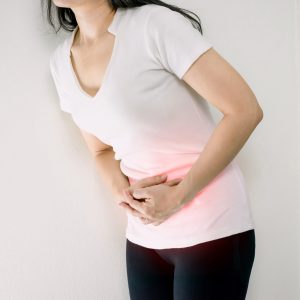Mr CP Lim (Consultant Advanced Gynaecological Endoscopic Surgeon)
Heavy menstrual bleeding is one of the most common reasons we see patients as a gynaecologist. About 1 in 20 women between the ages of 30 to 49 consult their GP each year reporting issues with their menstrual cycle. This data most likely represents only the tip of the iceberg concerning the true number of women who suffer with their periods, as some women may initially feel more comfortable exploring ways to self-manage their symptoms before seeking advice from their doctor. It is important to remember that treatment options for heavy periods have seen many advances throughout the years, so, women who need help are encouraged to seek medical advice in order to find the best solution for them.
How much is considered heavy?
Menstrual flows are considered to be heavy when the flow is so heavy that it affects an individual’s reasonable quality of life. However, each women’s experience with their menstrual cycle is different and varied. Some women may experience lighter flows and feel unable to self-manage their symptoms, whereas some may experience heavier flows but feel as though they are able to adequately manage their symptoms without seeking advice or support.
Why do women get heavy periods?
There are a number of reasons that may cause women to experience heavy periods:
- Structural problems like Fibroids or Uterine Polyps
- If a person is taking blood thinning medication
- Blood disorders
Women with heavy periods tend to have a gradual and long history so the likelihood of cancer is very low, especially in women younger than 45 years old. More often than not, tests and scans can come back as normal. However, although there is no determined cause, there are still ways in which your symptoms can be treated.
What about painful periods?
It is normal to experience some pain with heavy periods, especially with the occasional passage of clots, however, if periods are so painful that they disrupt a woman’s ability to carry out day-to-day activities, we may need to consider the possibility of Endometriosis and Adenomyosis. These conditions do not necessarily cause heavy periods, but heavy periods are commonly reported symptoms. Thankfully, these are completely benign conditions and most treatments for heavy periods will also address the pain at the same time.
Are there any useful tests women with heavy periods can have?
Blood test
Seeing a GP for some initial blood tests would be helpful because sometimes heavy periods can lead to low blood count (Anaemia), and this should be addressed with tablets promptly.
Ultrasound scan
A scan of the pelvis would be useful as it can pick up any obvious fibroids or polyps, and also provides an opportunity to have a thorough look at the ovaries.
Hysteroscopy
This is the best way to investigate heavy periods. This is when a gynaecologist inserts a fine camera through the vagina to look inside the womb. This allows us to study the general shape of the womb as well as obtain a biopsy and remove any polyps in the same setting if we see one. A coil can also be inserted at the same setting if the woman wishes. This can be done either under a general anaesthetic or as an outpatient procedure, depending on patient choice.
Treatment options
If scans and tests are found to be benign and the woman manages her quality of life well, the easiest option would be to do nothing. Other options include hormones or surgery. There is a very commonly used coil called Mirena, which is a T-shaped plastic device that sits inside the womb and releases the tiniest amount of progesterone hormone. Although it was invented as one of the most reliable forms of contraception, we find that it works wonders in reducing heavy periods at the same time. Although it can take a few months to improve period patterns, it will last 5 years or whenever the woman wishes for the coil to be removed. Other hormonal treatments are also available.
What are the surgical options?
If scans identify a fibroid larger than 3cm, the fibroid can be removed with a procedure called Myomectomy. Increasingly, this is available as a laparoscopic (keyhole) procedure. Even if the scan was normal, women can choose to have an Endometrial Ablation or a Hysterectomy.
Endometrial Ablation is when a woman has a hysteroscopy as I described earlier, and in the same setting, the gynaecologist uses electrosurgical techniques to permanently destroy the lining of the womb to cause a significant reduction in period bleeds. This is usually a day case procedure but done under general anaesthetic. Many women who have this procedure will have no bleeding afterwards and most who still have bleeding will find that they are far lighter than before and would still consider it a success. With this procedure, a woman should not have any intention to carry a pregnancy in the future.
Having a hysterectomy for heavy periods remains an available option for women who are at a stage when they do not wish to carry a pregnancy in the future. For those who may not be aware, this means the removal of the womb completely. In the recent decade, the majority of hysterectomies for heavy periods are now done by laparoscopic approach. Some women are even able to go home on the same day because of the small scars and low pain scores after a laparoscopic hysterectomy. It is worth mentioning that having a hysterectomy does not necessarily mean going through menopause because depending on individual circumstances, the ovaries do not necessarily have to be removed. As the ovaries are what produce the natural female hormones for the body, if we do not remove the ovaries at the time of hysterectomy, the woman will not go through menopause and get menopause symptoms, she will merely stop having periods.
Can you summarise what we discussed today?
Heavy periods are common but most women are able to manage them well. However, if this is not the case, do not suffer in silence because there will likely be a variety of treatment options available. Either discuss your options with your GP or make an appointment to see a local Gynaecologist.



 One Ashford
One Ashford One Hatfield
One Hatfield